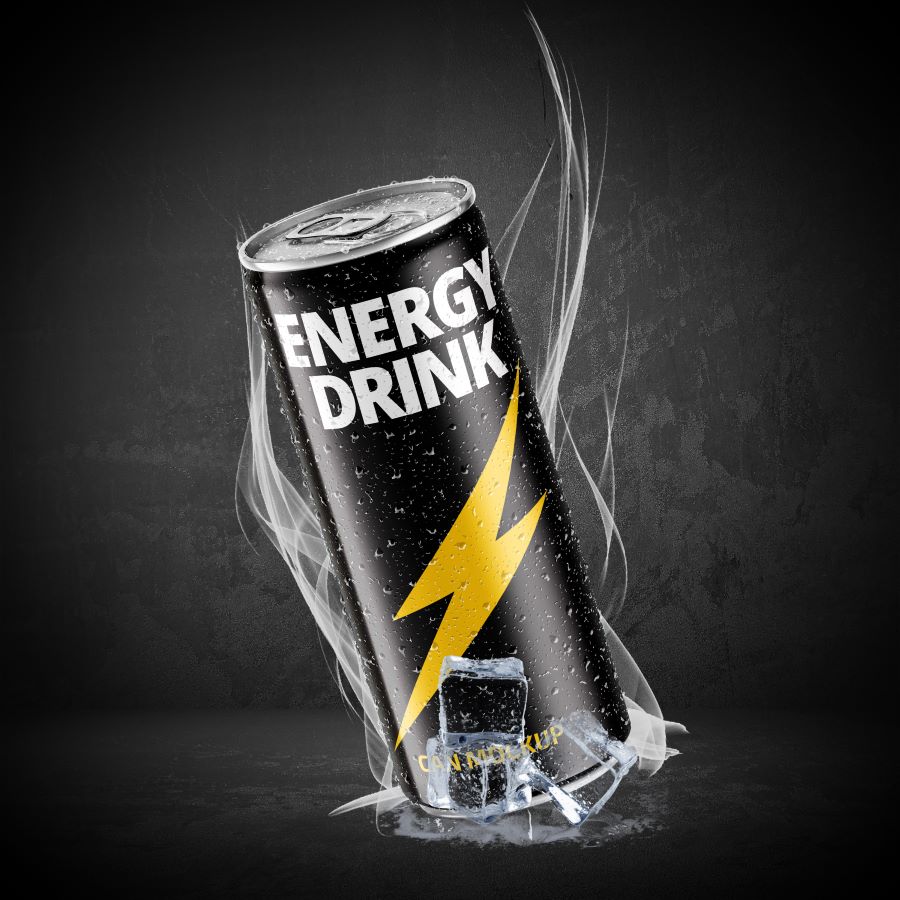Have you ever wondered about those flashy energy drinks that claim to boost your energy, sharpen your mind, and make you perform better physically?
They’re quite the talk, especially among young people in the U.S. In fact, after multivitamins, energy drinks are the most popular supplements for American teens and young adults.
Interestingly, it is suggested that guys between 18 and 34 years old guzzle down most energy-boosting beverages. Some research found one-third of teenagers aged 12 to 17 sip on them regularly.
There are two types. The first kind comes in bottles that look like regular soft drink containers, usually around 16 ounces in size. The other type, “energy shots,” comes in tiny bottles with just 2 to 2½, around 60-75ml ounces of super-concentrated liquid.
Caffeine is the main ingredient in such energy drinks. It can range from 70 to 240 milligrams in a 16-ounce glass. Daily recommended amounts from the NHS are 200 mg daily . This is from the NCCIH –[national center complementary and integrative health]
Caffeine is a stimulant that can increase your alertness and improve your mood.
However, too much caffeine can cause jitters, headaches, and even heart palpitations.
The main ingredients in energy drinks
* Vitamins
* High levels of sugar
* Herbal extracts like ginseng and guarana,
* Amino acid derivatives like taurine
Why do people drink energy drinks?
People consume energy drinks for various reasons, and one of the top motivations is to enhance mental alertness by boosting brain function. Numerous studies have demonstrated that these drinks can positively impact cognitive abilities such as memory, concentration, and reaction time. Additionally, they can decrease feelings of mental fatigue.
Some of the best Natural Energy Drinks
Here are some possible choices for energy-boosting beverages:
1. Yerba Mate-Based Energy Drinks:
- Sound Sparkling Organic Yerba Maté with Citrus and Hibiscus
- Guayaki Unsweetened Yerba Maté
2. Natural Energy Shots:
- Proper Wild Energy Shots
3. Natural Energy Shot with Collagen:
- Vital Proteins Collagen Energy Shots
4. Guayusa Tea-Based Energy Drink:
- Mati Sparkling Organic Energy Drinks (Unsweetened)
5. Matcha-Based Energy Drink:
- Toro Matcha Sparkling Ginger
6. Coffee-Based Energy Powder:
- Laird Superfood Instafuel (Unsweetened)
These options provide various energy sources and cater to different preferences and dietary needs. Check the ingredients for what they mean by natural and if they really were?
Are energy drinks bad for you?
In most cases anything in excess is harmful, and energy drinks are no exception.
Excess sugar:
Energy drinks deliver a hefty sugar wallop, typically harbouring 54 to 62 grams of added sugar. To give you a sense of scale, the American Heart Association suggests women should cap their daily added sugar at around 24 grams, while men should stay within 36 grams. Remarkably, a single energy drink can effortlessly surpass these daily sugar limits.
Excess Caffeine
Energy drinks vary in caffeine content, from 70 mg in an 8-ounce serving to 200 mg in a 16-ounce serving, compared to 95 mg in a standard cup of coffee.
Besides caffeine, they often include ingredients like taurine and guarana that boost caffeine levels . Ongoing research explores caffeine addiction and its impact, particularly among teenagers and young adults who are frequent consumers of energy drinks. The advised daily caffeine intake for adults is set at 400 mg.
Some Side effects of energy drinks
The majority of potential side effects linked to energy drinks stem from excessive caffeine consumption, including:
- Dehydration, resulting in headaches, dizziness, and fainting.
- Sleep disturbances.
- Digestive issues like heartburn.
- Elevated blood pressure.
- Nervousness.
- Anxiety
- Irregular heart rates
Can energy drinks kill you?
Caffeine wields potent effects on several vital organs, especially the heart and nervous system. After consuming an energy drink, you typically experience an increase in heart rate, and changes to blood pressure — changes that can potentially trigger heart attacks or strokes especially in those with underlying risks.
Recent research suggests that other ingredients like taurine may independently raise heart rate, blood pressure, and the risk of heart rhythm irregularities, regardless of caffeine content.
Moreover, these energy drinks can bring about periods of anxiety, disrupt sleep patterns, and induce mood swings, particularly in children and adolescents. Reports link energy drinks to severe complications such as seizures, strokes, and sudden cardiac death.
Is Red Bull good for health?
Consuming Red Bull can have adverse effects on your body, including:
- Elevating blood pressure and heart rate.
- Possibly boosting the likelihood of developing type 2 diabetes.
- Causing potential damage to your teeth due to high sugar content
- Posing a risk of caffeine overdose
- Lead to feelings of anxiety and create changes in mood
Are energy drinks linked to erectile dysfunction causes?
Limited research exists regarding the potential connection between energy drinks and erectile dysfunction (ED). Although energy drinks are known to contain high levels of caffeine and stimulants, there is no definitive evidence establishing a direct link between energy drinks and ED.
Moreover, certain ingredients found in energy drinks, like taurine and ginseng, have been suggested to have potential positive effects on erectile function.
There are lifestyle factors which could contribute to erectile dysfunction. It is important to ensure a healthy lifestyle, reduce excess weight and limit alcohol.
What are the causes of erectile dysfunction?
Erectile dysfunction (ED) is the incapacity to attain or sustain a satisfactory penile erection for sexual performance.
According to a study conducted between 1987 and 1989, approximately 52 per cent of men aged 40–70 experienced ED (Impotence and its medical and psychosocial correlates). It is worth noting that erectile dysfunction was mild, moderate and of complete impotence. Impotence [ED] is when you cannot get an erection or unable to keep an erection for long enough to have sex.
In 1995, it was estimated that around 152 million men worldwide were affected by ED. Predictions suggest that in 2025, this number could increase to approximately 322 million (John Hopkins Medicine).
Conclusion
The quick facts surrounding energy drinks
While energy drinks can temporarily boost energy levels and concentration, it’s crucial to exercise caution when consuming them.
Significant health concerns are associated with energy drinks, mainly from excessive caffeine, high sugar content, and the combination with alcohol.
To promote better health, individuals should restrict their consumption of energy drinks and consider healthier alternatives such as water, tea, or natural fruit juices.
If you choose to have energy drinks, it’s essential to do so in moderation and be mindful of “energy shots” and their sugar content.
Moreover, reducing your intake of other caffeinated beverages is wise to prevent the adverse effects of excessive caffeine consumption.
Lastly, it’s important to note that energy drinks are not suitable for everyone, including pregnant women, children, and individuals with certain medical conditions.
Consulting with a Doctor is advisable before incorporating them into your diet.
To see my video guide please click on the Link: https://www.youtube.com/watch?v=nge9Oqb66h8
References
https://www.nccih.nih.gov/health/energy-drinks
https://www.goodrx.com/well-being/diet-nutrition/energy-drinks
https://health.usnews.com/health-care/for-better/articles/2017-05-24/caffeine-can-kill-the-dangers-of-energy-drinks
https://www.hopkinsmedicine.org/health/conditions-and-diseases/erectile-dysfunction
https://pubmed.ncbi.nlm.nih.gov/8254833/
Disclaimer: The Content on this channel is for educational purposes. It is not a substitute for professional medical advice, diagnosis, or treatment. Always consult your doctor if you are worried or have symptoms.



1 Comment